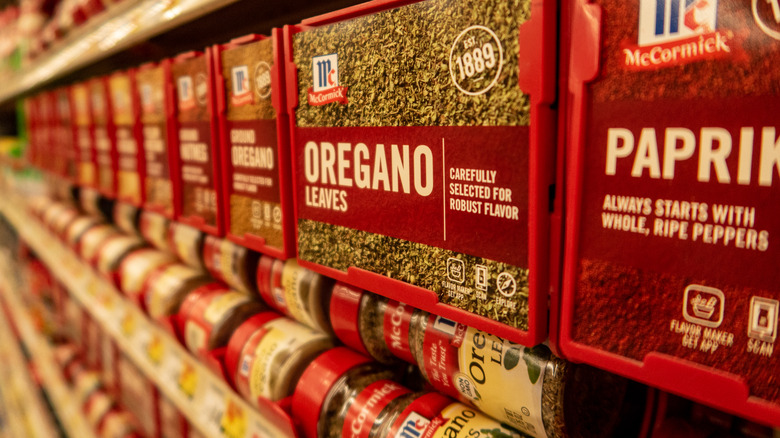Grocery Store Spice Markups Will Have You Seeing (And Paying) Double
These days, we're all looking for ways to save money at the grocery store. Some shoppers compare product prices as we shop to make sure we're getting the best deal, while others join stores' rewards programs and reap the benefits of exclusive discounts. Some of us are also strategic about which brand-name products we buy, and which ones we forgo in favor of generic brands.
Buying generic rather than brand-name is almost always the best way to go, as the products are usually of the same quality but for a lower price, but we won't deny there are some foods you shouldn't buy generic. That being said, on average, generic foods can cost anywhere from 15% to 30% less than brand-name foods, and those savings pile up fast.
Things like frozen veggies, canned goods, and cereal are all ideal for buying generic, as they usually all have the same ingredients as their brand-name counterparts anyway. However, for the ultimate grocery store savings, we highly recommend going generic with the spices in your home kitchen.
Why you should buy generic spices over brand-name
If you thought that 30% was quite the savings, wait until you hear how much brand-names mark up their spices. In an interview with Business Insider, savings expert Andrea Woroch explained that brand-name spices –- such as McCormick, Old Bay, and Lawry's -– can be marked up by as much as 97%.
According to Woroch, you can pay $3.50 for a brand-name jar of bay leaves, but you can also go to a natural foods store or an ethnic foods store and buy the same sized generic jar of bay leaves for mere cents. While we can't speak for everyone, we know which option we'd prefer.
Other ways to save money on spices include buying in bulk, buying whole spices and grinding them yourself, and shopping at farmers' markets. There's really no need to pay a hefty upcharge for brand-name spices, or even the jar itself, if it comes down to it. Just bring your own jar!

